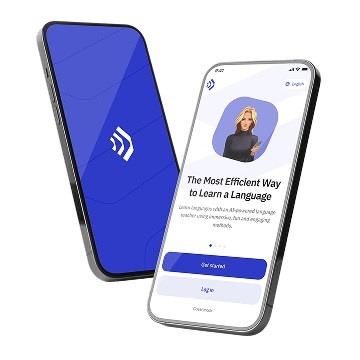Learning a new language can be a fascinating journey, and Italian, with its melodious sounds and rich cultural heritage, is an appealing choice for many. In Lithuania, the interest in learning Italian has seen a noticeable increase, partly due to the growing cultural and economic ties between Lithuania and Italy. This article provides a comprehensive guide on how to learn Italian in Lithuania, covering various aspects from available courses to cultural immersion opportunities.
Reasons to Learn Italian in Lithuania
Lithuania might not be the first place that comes to mind when considering learning Italian, but there are several compelling reasons to do so:
– Educational Opportunities: Several Lithuanian universities offer Italian language courses as part of their curriculum, which are open to both students and the general public.
– Cultural Appreciation: With a growing Italian community in Lithuania, learning the language can help in better understanding and appreciating Italian culture and traditions.
– Business and Career Benefits: As trade and cooperation between Lithuania and Italy grow, proficiency in Italian can be a valuable asset in various business and career fields.
Italian Language Courses in Lithuania
There are numerous options for learning Italian in Lithuania, ranging from university courses to private language schools and online platforms. Each of these options offers different levels of intensity and engagement, depending on your learning goals and schedule.
University Courses
Several universities in Lithuania, including Vilnius University and Vytautas Magnus University, offer Italian language courses. These courses are often comprehensive and are taught by experienced instructors. They are suitable for both beginners and those looking to advance their skills.
Private Language Schools
Private language schools in Lithuania provide flexibility and personalized learning experiences. Schools such as Kalba.lt and Lingua Lituanica offer a variety of Italian courses that cater to different levels and learning styles.
Online Learning Platforms
For those who prefer self-paced learning or cannot commit to in-person classes, online platforms like Duolingo, Babbel, and Rosetta Stone offer Italian courses. These platforms provide interactive and engaging content that helps in developing language skills effectively.
Immersion Programs and Language Partners
Immersing yourself in a language is one of the most effective ways to learn. In Lithuania, there are opportunities to immerse yourself in Italian through language exchange programs and cultural events.
Language Exchange Programs
Participating in a language exchange program can be a beneficial way to practice Italian. Platforms such as Tandem and ConversationExchange allow you to connect with native Italian speakers who are interested in learning Lithuanian, facilitating a mutually beneficial learning environment.
Cultural Events and Italian Community
Engaging with the Italian community in Lithuania can enhance your language learning experience. Attending Italian film screenings, exhibitions, and festivals can provide exposure to the language and culture. The Italian Embassy in Vilnius often organizes cultural events that are open to the public.
Resources and Materials for Learning Italian
Utilizing the right resources can significantly impact your ability to learn Italian effectively. From textbooks to mobile apps, there are numerous materials available for learners at all levels.
Textbooks and Workbooks
For structured learning, textbooks like “Nuovo Espresso” and “Passaparola” are popular among learners. These books provide grammatical explanations, vocabulary, and exercises that are essential for building a strong foundation in Italian.
Mobile Apps
Mobile apps are convenient for on-the-go learning. Apps like Memrise and Quizlet offer flashcards and quizzes that help in memorizing vocabulary and phrases essential for everyday conversations.
Italian Media
Engaging with Italian media such as newspapers, movies, and music can enhance your listening and comprehension skills. Watching Italian movies or listening to Italian music can also make learning enjoyable.
Challenges and Tips for Learning Italian in Lithuania
While learning Italian in Lithuania is accessible, it comes with its own set of challenges. However, with the right approach, these challenges can be overcome.
Challenge: Limited Exposure
One of the main challenges is the limited exposure to the Italian language within the local environment. To overcome this, try to create an immersive environment at home by listening to Italian radio, watching Italian TV shows, and practicing speaking as much as possible.
Tip: Consistency is Key
Consistency is crucial when learning a new language. Make a schedule that allows for regular study and practice. Even short, daily sessions are more effective than occasional, lengthy sessions.
Tip: Engage with the Language
Engagement can significantly improve your language skills. Try writing essays, speaking with native speakers, or even recording yourself to improve pronunciation and gain confidence.
Conclusion
Learning Italian in Lithuania is a rewarding endeavor that opens up numerous cultural and professional opportunities. By choosing the right course, engaging with the community, and utilizing effective learning materials, you can master the beautiful Italian language while enjoying the process. Whether for personal fulfillment, career advancement, or cultural appreciation, the resources and opportunities available in Lithuania make it an excellent place to start your Italian language learning journey.





